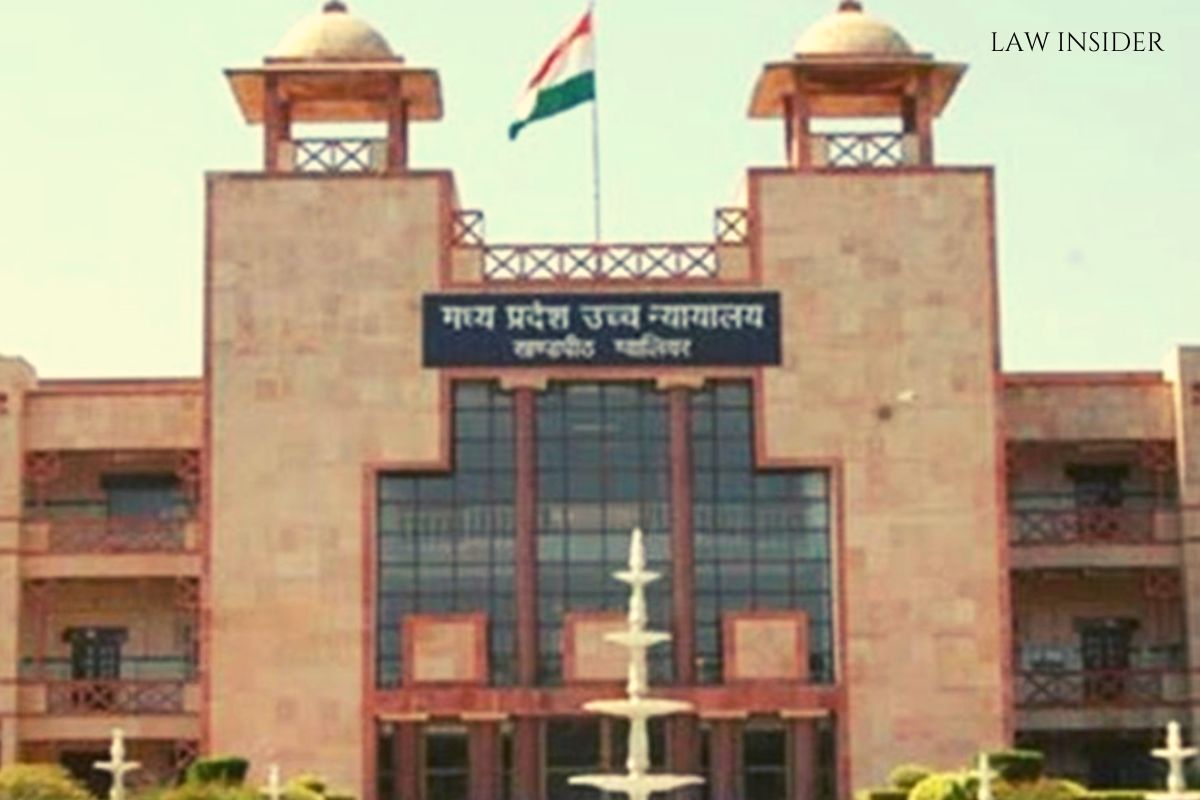Akansha Upadhyay
Published on: 14 November 2022 at 17:58 IST
The Madhya Pradesh High Court held that an accused person need not to be arrested formally for the purpose of the statement under Section 27 of the Indian Evidence Act.
The Division Bench of Justices Sujoy Paul and PC Gupta, while hearing the criminal appeal, held that for fulfilment of provision under Section 27 – person must be guilty of any offence and the person must be in the police custody only, no formal arrest is required.
The appellant filed the appeal challenging the guilty verdict before the court. The accused was arrested under Section 302 of IPC for killing his roommate. His case was wholly based on the circumstantial evidences and his statement recorded under Section 27 of the Indian Evidence Act. He himself informer police officer about the location of dead body and other incriminating evidences.
It is said by counsel representing accused, that there is no eye-witness to the incident. The case of prosecution is based on last seen evidence, recovery of dead body, weapon and stones etc. and also on other circumstances.
By seeing all the witnesses on behalf of prosecution side it is said by the Advocate Rakesh Kumar Jain that it is not sufficient ground to prove that appellant murdered the Jagdamba Prasad his fellow classmate.
In this view of the matter, recovery is doubtful and cannot be a reason to hold the appellant as guilty.
Yogesh Dhande, learned Government Advocate supported the impugned judgment by contending that the Court below has considered the evidence in its entirety. The Court below rightly appreciated the evidence.
Further he submits that the appellant was held guilty on the basis of last seen evidence, recovery and other circumstances. The learned counsel submits that recovery of knife, stone and dead body at the instance of appellant directly shows his guilt in the matter. The mud / earth recovered from appellant’s shoes, paddle of cycle which matched with the mud available on the dead body and other articles as per FSL report is highly incriminating.
Reasoning of Court –
In view of aforesaid factual matrix of the case, indisputably the case of the prosecution is based on circumstantial evidence. Learned counsel for the parties rightly stated that the appellant was held guilty on the basis of last seen evidence, recovery of dead body and weapon at the instance of appellant and other incriminating circumstances.
However, the court was not satisfied with the submission of the Appellant. The court noted that the absence of motive would not absolve the Appellant, especially when the chain of circumstances was established against him.
“In our view, the existence of motive in cases of circumstantial evidence certainly assumes greater significance and importance. However, as a rule of thumb, it cannot be said that in no case, in absence of motive accused can be held guilty.”
“If circumstantial evidence is clear and complete chain of circumstances are established which clearly proves that accused alone had committed the offence, the accused can be held guilty.”
Regarding the issues over evidentiary value of accused statement under Section 27 of IEA, the Court observes that it could not be rejected on the ground that he was not formally under arrest. Differentiation between the terms “arrest” and “custody”, the Court was of the opinion that the provision only requires the person to be in the custody of police officer. Hence, the court upheld the validity of his statement in this matter.
Consistent with the principle laid down in aforesaid cases, the bench was constrained to hold that evidence led by the prosecution clearly establishes that appellant was indeed in custody on 27.08.2009. Although, he was formally arrested on the next day. The dead body and weapon are admittedly recovered at the instance and on the basis of information given by the appellant.
The Investigating Officer clearly established that the soil / earth from the place of incident, body of deceased were recovered and same exercise was done to recover the soil/earth from the appellant’s shoes, bicycle, paddle etc.
In view of foregoing analysis, the prosecution has established its case beyond reasonable doubt. There is nothing to hold against the decision of the trial court and accordingly, the appeal was set aside.
Case Title: Ashutosh Kaithwas vs. State of Madhya Pradesh

